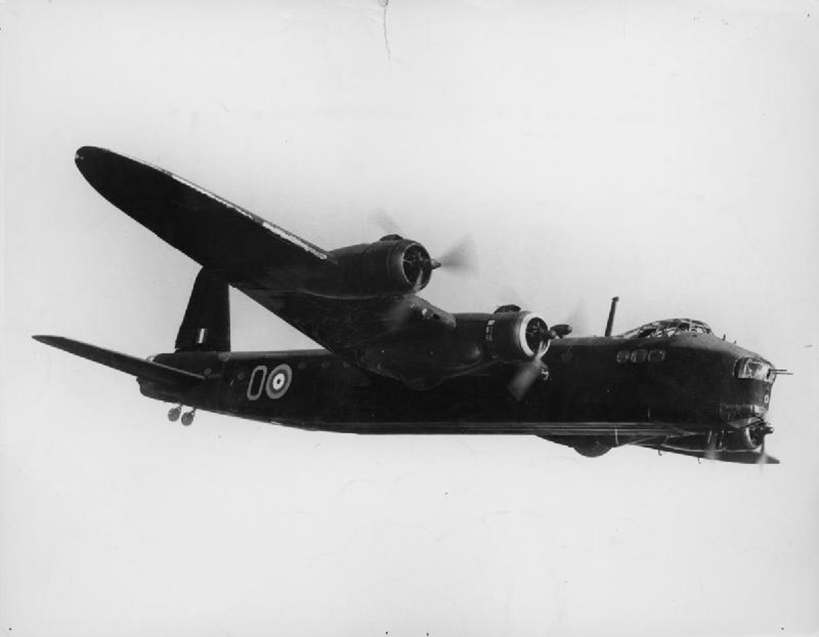Dutton, Roy Gilbert
- Date of birth:
- March 2nd, 1917
- Date of death:
- September 14th, 1988
- Service number:
- 39072
- Nationality:
- British
Biography
Roy Dutton was born in Hatton on Ceylon and educated in England
He joined the RAF on a short service commission in 1936. Initially trained and operating as a fighter pilot, he later transferred to transport operations. As a fighter pilot, he became one of the highest scoring pilots of the Battle of Britain, his final tally standing at 13 confirmed with six shared, one unconfirmed, two probables and eight damaged with one shared.
Taking command of No 512 Squadron, the unit was part of No 46 Group and with its Dakota's was tasked with tactical support. Initially based at Broadwell it moved to Evere in Belgium in March 1945. However, by the time of the squadron's move back to Holme on Spalding Moor in August, he had already returned to the UK and taken command of No 525 Squadron at Membury. When he took over command, the squadron was involved in trooping flights to India but these changed to the trooping of soldiers into Greece from Egypt in September. From February 1946, they began mail and newspaper schedules within Europe but the following month he left to assume command of No 46 Squadron at RAF Stoney Cross. With 46, he was involved in flying scheduled freight services to the Middle East using Stirling V's until May when the squadron converted to Dakota's.
From February 1965 he was Personal Aide-de-Camp to the Queen and became Defence and Air Attaché in Moscow until his retirement in December 1970.
He then ran the Welfare RAF Benevolent Fund until his full retirement in 1982.
Post-war decorations:
June 11th, 1966: CBE
Promotions:
August 24th, 1936: Acting Pilot Officer
June 29th, 1937: Pilot Officer
January 29th, 1939: Flying Officer
April 4th, 1940: Acting Flight Lieutenant
September 3th, 1940: Flight Lieutenant
April 13th, 1941: Acting Squadron Leader
September 1st, 1941: Temporary Squadron Leader
September 9th, 1943: Squadron leader (war substantive)
July 1st, 1944: Temporary wing commander
September 1st, 1945: Squadron Leader (permanent)
July 1st, 1950: Wing Commander
July 1st, 1957: Group Captain
May 2nd, 1968: Acting Air Commodore
Air Commodore
Do you have more information about this person? Inform us!
- Period:
- Second World War (1939-1945)
- Rank:
- Acting Flight Lieutenant
- Awarded on:
- May 31st, 1940
"In May, 1940, whilst leading a section of a squadron on patrol over Brussels. Fit. Lt. Dutton attacked and shot down two Heinkel 111 aircraft. The next day, when leading a section of a squadron, seven Messerschmitt fighters were sighted escorting from fifty to seventy enemy bombers. The leader of the formation attacked the bombers, and Fit. Lt. Dutton, realising the danger to the formation, ordered two aircraft of his own section also to attack the bombers whilst he climbed and engaged the Messerschmitts until the attack on the bombers was completed. He then dived away, and flying west sighted and shot down a Heinkel 111 with his remaining ammunition. Flt. Lt. Dutton has displayed initiative, gallantry and a complete disregard for his own safety."
- Period:
- Second World War (1939-1945)
- Rank:
- Acting Flight Lieutenant
- Awarded on:
- August 20th, 1940
"This officer has led patrols with conspicuous success and has personally destroyed at least twelve enemy aircraft. He has displayed splendid qualities of leadership and courage, with a complete disregard for his own safety."
Second DFC awarded as a bar for on the ribbon of the first DFC.
- Period:
- Second World War (1939-1945)
- Rank:
- Acting Wing Commander
- Unit:
- Reserve of Air Force Officers
- Awarded on:
- June 8th, 1944
- Period:
- Second World War (1939-1945)
- Rank:
- Acting Wing Commander
- Unit:
- No. 512 Squadron, Royal Air Force
- Awarded on:
- June 8th, 1945
"This officer was detailed to lead the glider train comprising well over 400 tug and glider combinations which conveyed members of the airborne division concerned to a point between Weser and Emmerich in March, 1945. Keenly aware of the responsibility entrusted to him, Wing Commander Dutton led this great force with skill and good judgment to the, battle area. First to reach the zone, his tug glider combination was subjected to heavy fire but Wing Commander Dutton flew straight and steady to the landing zone several miles behind the enemy's lines. Only when sure that the glider could reach the objective would, he gave the order to release.
This officer displayed skill, courage and devotion to duty of the highest
order."
Sources
- - Supplement to The London Gazette Issue 34860 published on the 28 May 1940
- The London Gazette Issue 34927 published on the 20 August 1940
- Supplement to The London Gazette Issue 36544 published on the 2 June 1944
- Fourth Supplement to The London Gazette Issue 37115 published on the 5 June 1945
- Air of Authorities
- Flight Global - Archive






